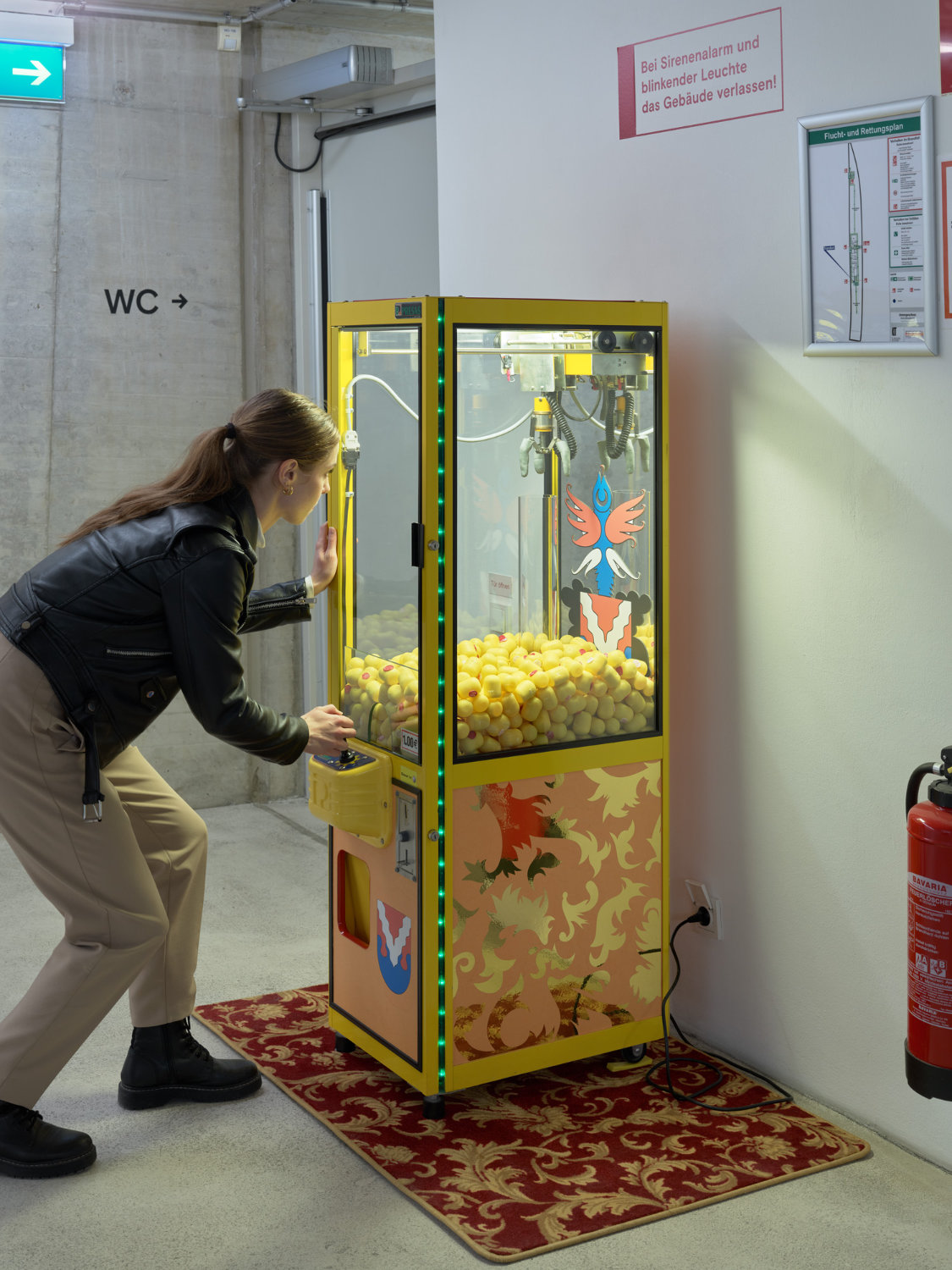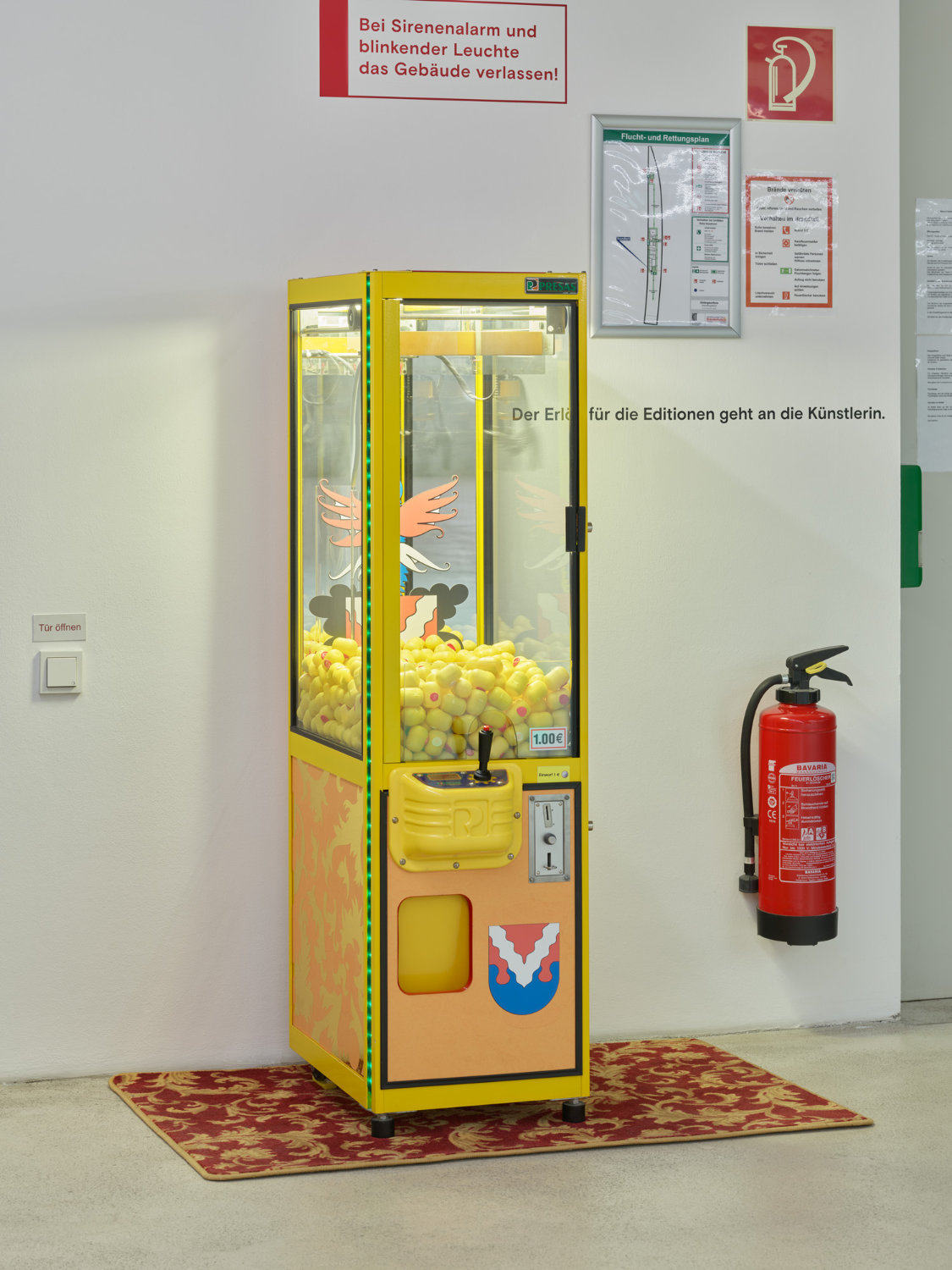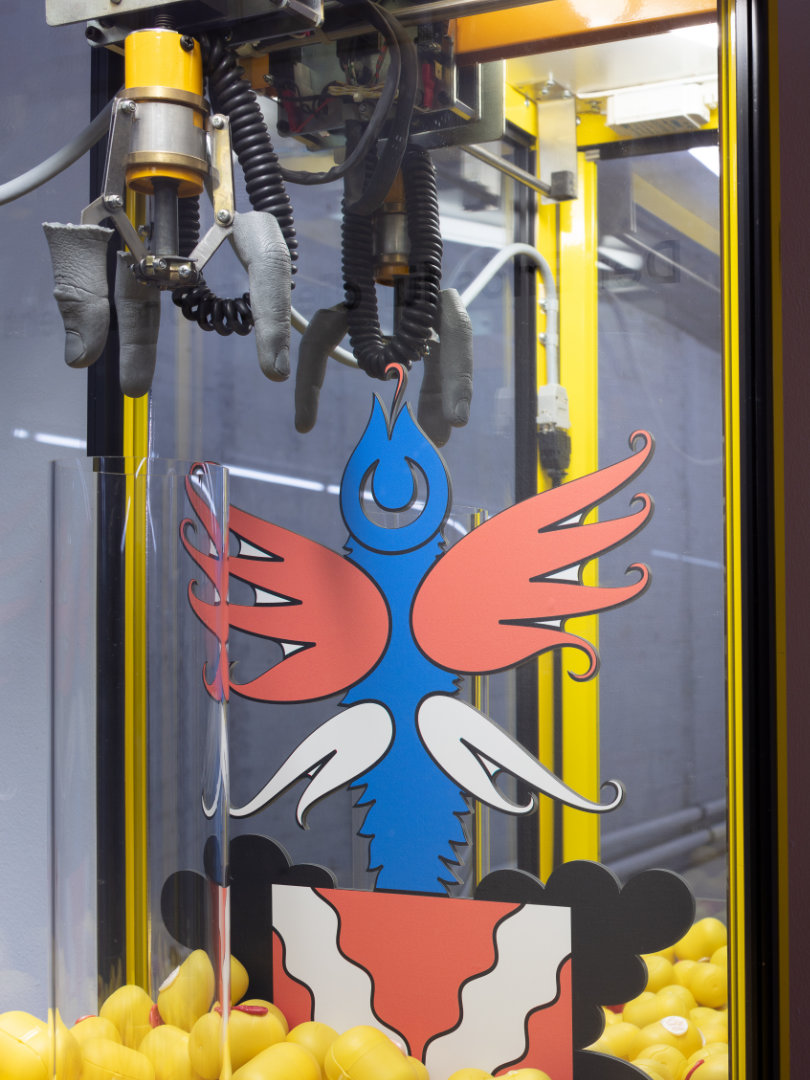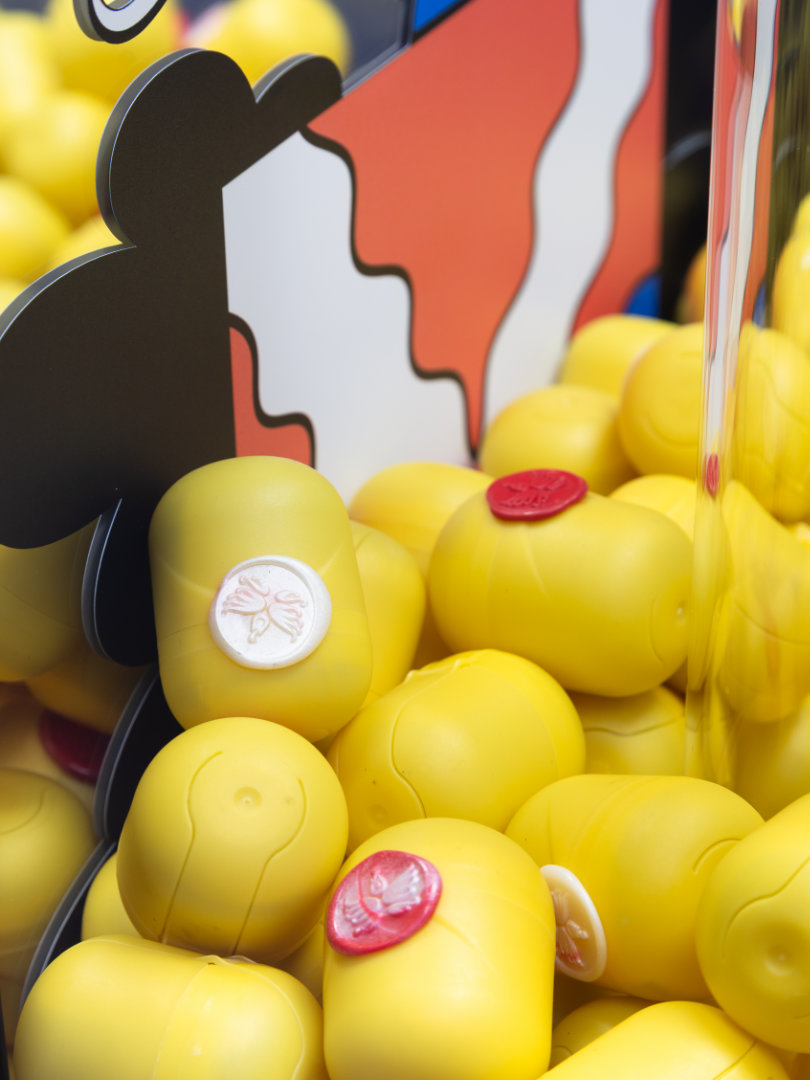Automat gewährt Wünsche
The claw is a typical model that we recognise from fairgrounds, arcades or entertainment parks. It is placed on a red patterned carpet that evokes associations with a Casino night. Instead of stuffed animals or sweets, the machine is equipped with plastic shells of Kinder eggs, which are sealed with a wax sigil in the shape of a coat of arms. The coat of arms as such bears a longstanding symbolism that represents power, wealth and possessions. Opposed to this is the heraldic animal, the flying fish: its special ability, the gliding flight, usually means a flight from predators. It seems as if the fish has escaped from the water into the vending machine along with its eggs. But here, too, they become consumable (art) objects; ready to be seized by the human fingers of the claw arm.
Departing from the usual conventions of art exhibitions, Pai Litzenberger only permits the use of their automatic claw machine in exchange for real money. The total of 1,111 eggs and their secret contents can be obtained for one euro each. This gives visitors the opportunity to take a part of the work back home with them and own it value-free. In addition, Pai Litzenberger will pay the money back to themself as a renumeration for their work – to ensure their own economic stability. The installation Automat gewährt Wünsche (Machine grants Wishes) draws attention to the exploitative mechanisms in the capitalist art business and critically questions the meaning of art as a luxury object that increases in value.
excerpt from text by Hannah Niemeier



